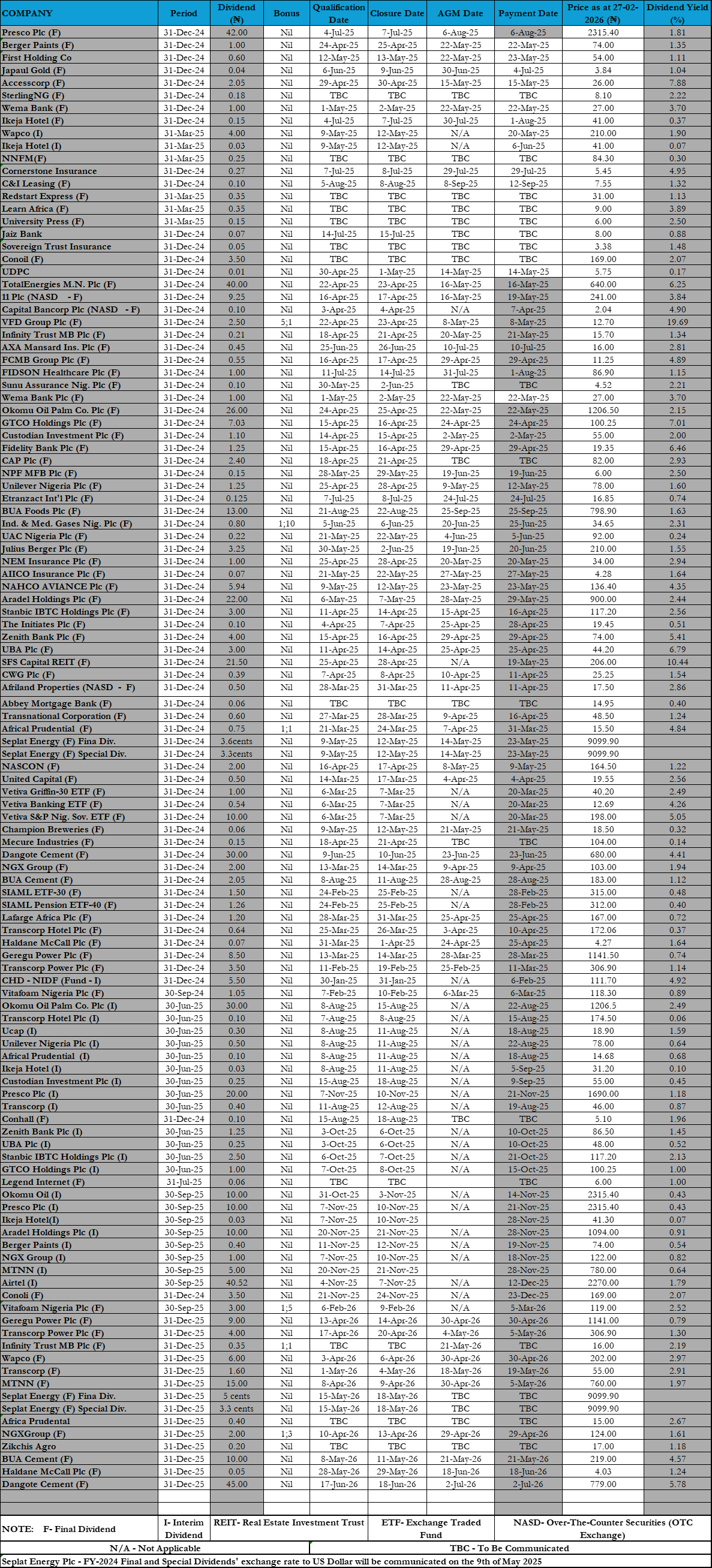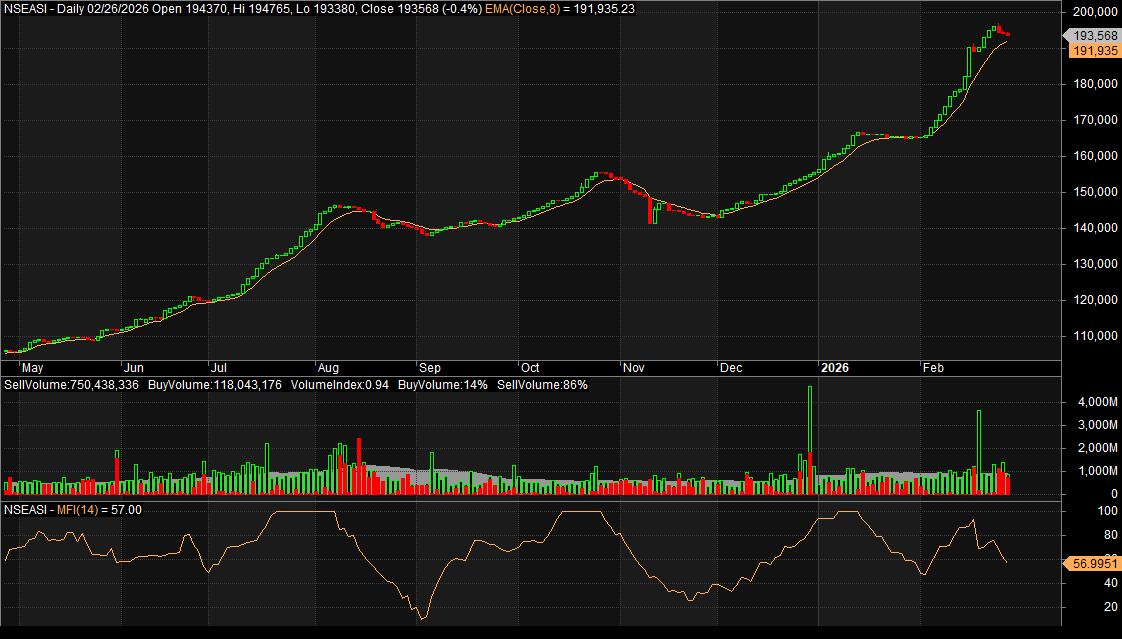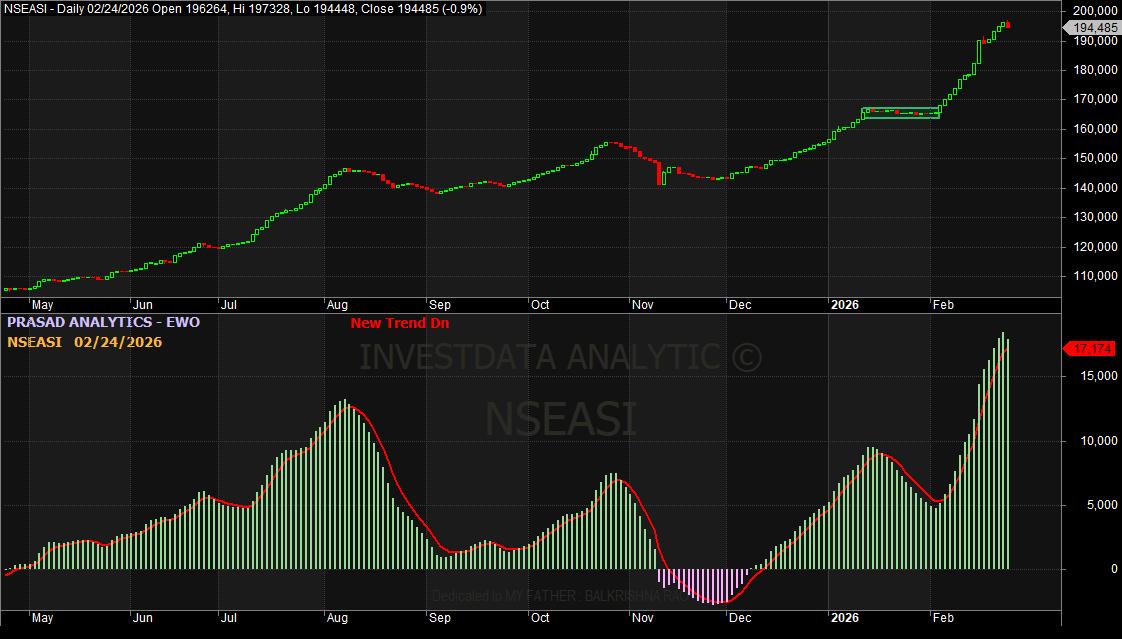Market Update For November 7, 2025
The Nigerian Exchange (NGX) ended the trading week on a bearish note, extending its losing streak as investors continued to take profits amid weak sentiment and cautious repositioning. The negative performance reflected renewed sell pressure across the banking, consumer goods, and industrial goods sectors, as investors reacted to mixed earnings results, persistent inflationary pressure, and tight liquidity conditions in the broader economy.
The week opened with cautious optimism, but sentiment quickly shifted as market participants booked profits from earlier gains, particularly in large-cap and mid-tier banking stocks. The sustained risk-off attitude in the market was further influenced by monetary tightening, weak consumer demand, and expectations of higher fixed-income yields, which have diverted liquidity from the equities market. Institutional investors maintained defensive positions, while retail traders showed limited participation due to reduced risk appetite and the absence of strong bullish triggers.
Investor confidence remained subdued throughout the week, with market breadth closing in the negative territory. Forty decliners outweighed seventeen gainers, showing a broad-based selloff across key sectors. The profit-taking trend, which has characterized the market in recent weeks, persisted as traders adjusted portfolios ahead of fresh macroeconomic data and potential policy signals from the Central Bank of Nigeria (CBN).
Activity level declined further, reflecting weak momentum and a slowdown in buying interest. Total traded volume fell by 14.92 percent to 527.17 million shares, valued at ₦15.38 billion, across 24,637 deals. This marked a sharp reduction compared to previous sessions, indicating that investors are currently more focused on preserving capital than on aggressive accumulation. WEMABANK emerged as the most traded equity both in volume and value terms, accounting for 17.24 percent and 11.12 percent respectively. It was followed by MANSARD, ACCESSCORP, GUINNESS, and ZENITHBANK, which also witnessed relatively active trading.
The banking sector was the major drag on market performance as heavy selloffs in UBA, ACCESSCORP, GTCO, and ZENITHBANK eroded earlier gains. The consumer goods sector also posted losses due to sustained price declines in NB, FIDSON, and OANDO, while the industrial goods sector weakened further following sell pressure in BERGER, WAPCO, and JBERGER. On the other hand, a few stocks in the insurance and ICT sectors attracted mild buying interest, driven by short-term speculative positioning and bargain hunting in undervalued counters.
Technically, the market remains under downward pressure as the All-Share Index (ASI) continues to trade below its 20-day and 50-day moving averages, reflecting weak buying momentum and sustained bearish sentiment. The Relative Strength Index (RSI) hovered around the 45-point mark, suggesting that the market is still in the oversold region but without clear signs of reversal yet. The price pattern indicates consolidation within the 148,500 to 150,500 range. A decisive breakout above the upper band could pave the way for renewed bullish sentiment, while a drop below the lower support zone may trigger another wave of selloffs toward 147,000 points.
The Moving Average Convergence Divergence (MACD) also shows a bearish crossover, confirming short-term weakness in momentum. However, bargain hunters may start re-entering the market gradually, taking advantage of the lower valuations of fundamentally strong stocks, especially in the banking and industrial sectors.
Outlook
Looking ahead, the coming week is expected to maintain a mixed tone, shaped by the interplay of bargain hunting and continued profit-taking. Investors are likely to remain cautious as they digest upcoming macroeconomic data, inflation figures, and central bank policy direction. The market may also experience intermittent rebounds driven by technical corrections, especially in stocks that have declined significantly from their recent highs. Medium to long-term investors may find this period attractive for selective accumulation of value stocks ahead of the year-end rally, which could be fueled by dividend expectations and portfolio rebalancing.
In the global commodities market, crude oil prices edged higher on Friday after three consecutive days of losses but still closed the week in negative territory for the second consecutive time. Brent crude gained 0.65 percent to trade at $63.79 per barrel, while West Texas Intermediate (WTI) rose 0.77 percent to $59.89 per barrel. The rebound was driven by short-covering and easing concerns over a potential oversupply after sanctions on Russian oil firms began to take effect. However, a surprise build-up in U.S. crude inventories by 5.2 million barrels rekindled fears of an oversupplied market and weakening demand, especially as U.S. refineries cut back production and imports rose.
Both benchmarks have now lost about 2 percent week-on-week, pressured by higher output from top producers and sluggish demand in major consuming economies. The oil market remains vulnerable to price swings as traders weigh the impact of slower global growth and high inventory levels against expectations of future production cuts.
At the close of the week, the Nigerian equities market ended lower as the All-Share Index (ASI) fell by 0.33 percent to 149,524.81 points, compared to 150,026.55 points in the previous session. Market capitalization declined by ₦318.78 billion to settle at ₦95 trillion, while the year-to-date (YTD) return moderated to 45.27 percent.
Market breadth closed negative with 40 losers and 17 gainers. BERGER led the decliners with a 10.00 percent loss, followed by MECURE, which dropped 9.77 percent, CUSTODIAN down by 9.31 percent, and FIDSON losing 4.76 percent. Other significant losers included NB, OANDO, UBA, and ACCESSCORP. On the flip side, NCR led the gainers’ table after hitting a new 52-week high of ₦19.35, supported by renewed investor interest and sustained buying pressure in the stock.
The continuous sell pressure across key sectors and weak investor participation suggest that sentiment will remain cautious in the short term. However, given the level of price corrections witnessed recently, there are opportunities for medium-term repositioning in fundamentally sound stocks, especially within the banking, industrial, and energy sectors, as investors prepare for a potential rebound in the final quarter of the year.











